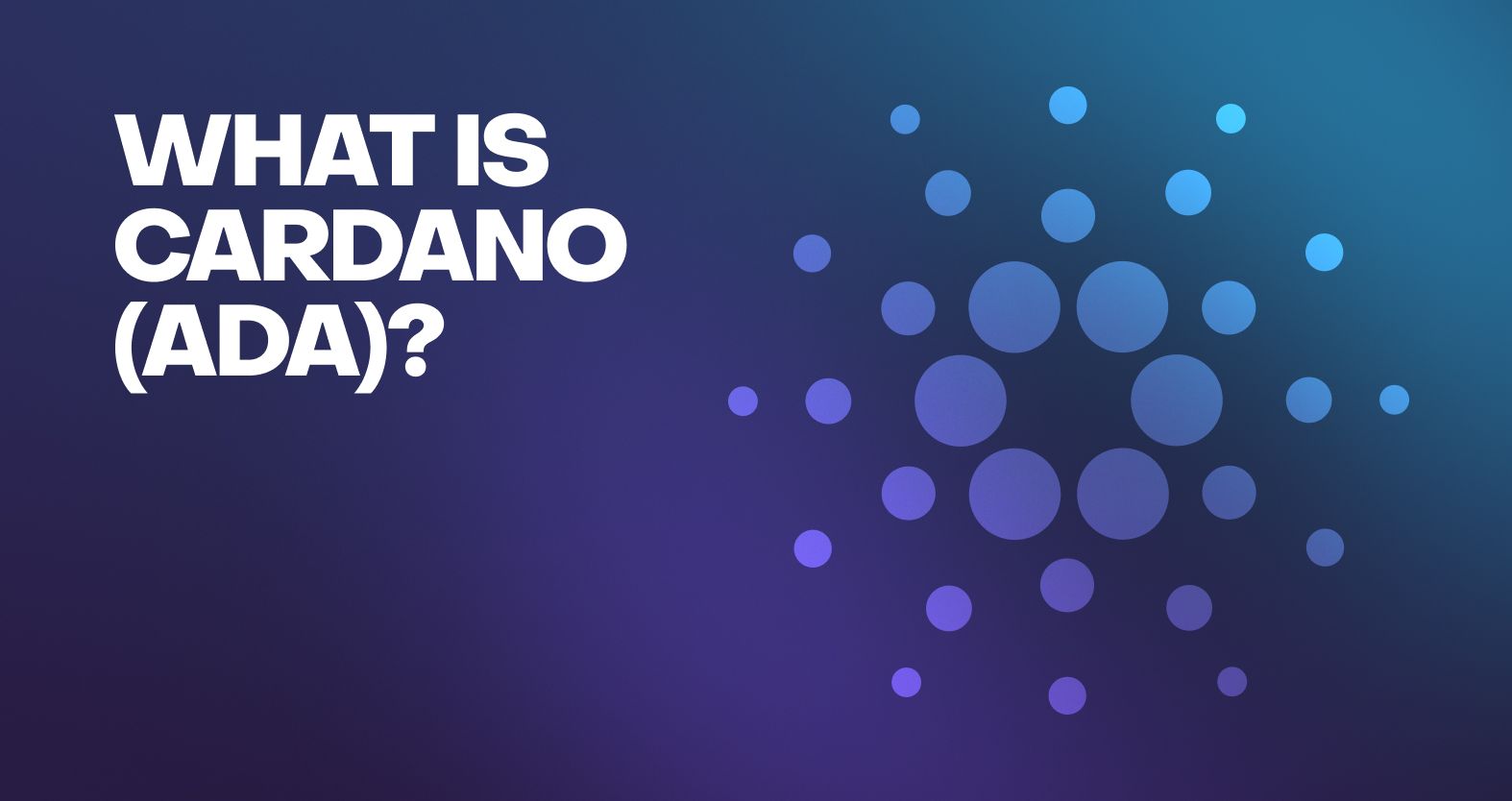
What is Cardano (ADA)?
Table of contents
Cardano is a decentralized and open-source blockchain platform that uses a proof-of-stake consensus algorithm to validate transactions and create new blocks on their chain.
The blockchain market could reach $39.7 billion by 2025, driven by a growing demand for secure and transparent transactions and record-keeping across various industries. Cardano, a decentralized, open-source blockchain network, is a prime example of the success and growth recorded within the crypto sector. The network aims to facilitate fast, efficient, and sustainable blockchain transactions across multiple networks.
What Is Cardano?
Cardano is a decentralized, open-source blockchain platform launched by blockchain development firm Input Output Hong Kong (IOHK). It is a blockchain platform that aims to improve on the Ethereum smart contract platform concept by offering a more flexible, sustainable, and scalable environment for the execution of smart contracts. This enables the creation of various decentralized finance applications, new cryptocurrencies, games, and other innovations.
How Does Cardano Work?
Cardano aims to be the most eco-friendly blockchain platform. It uses a proof-of-stake consensus algorithm called Ouroboros, which is more energy-efficient than the proof-of-work mechanism utilized by Bitcoin. Cardano relies on a unique "multi-layer" architecture that separates the transaction and settlement layers. This allows the platform to process transactions more efficiently and makes it more secure and resistant to attacks. Additionally, Cardano strongly focuses on sustainability and uses a programming language called Haskell, designed to surpass Ethereum's Solidity by improving security and predictability.
Benefits of Cardano's Proof-of-stake (PoS) Mechanism
There are several advantages to using proof-of-stake (PoS) over proof-of-work (PoW) on the Cardano network:
Energy Efficiency: PoS is more energy-efficient than PoW, as it does not require miners to utilize expensive computational procedures to solve complex mathematical problems. This makes Cardano a more sustainable and environmentally friendly option.
Increased Security: Since traditional miners are unnecessary, Cardano's PoS algorithm makes the network more secure and less likely to be manipulated by attackers.
Faster Transaction Processing: By eliminating the processes involved in mining, Cardano's Ouroboros algorithm can process transactions faster than PoW algorithms. As a result, the blockchain is more responsive and efficient.
Greater Decentralization: The absence of miners that require expensive, specialized hardware makes Cardano's PoS algorithm more decentralized than PoW algorithms. This way, a wider range of users participate in the network and contribute to its security and stability.
A Brief History of Cardano
Cardano is a blockchain platform launched in September 2017 by Charles Hoskinson, co-founder of Ethereum. It aims to be a third-generation blockchain project, building on the innovations of Bitcoin and Ethereum. One of Cardano's goals is to offer a highly scalable and energy-efficient platform for running smart contract-based applications.
A team of scientists and cryptographers from the University of Edinburgh and Tokyo University developed the Ouroboros consensus algorithm used by Cardano. Their research sought to create a decentralized network capable of validating transactions securely and efficiently while minimizing energy consumption.
Since its launch, Cardano has enjoyed relatively significant adoption. It is particularly popular in Asia for its use in various applications, including supply chain management and voting systems.
ADA: Cardano's Native Coin
ADA is the native cryptocurrency of the Cardano blockchain platform. The coin has a total fixed supply of 45 billion, distributed through various means, such as staking rewards for validators, an inflationary mechanism, partnerships and collaborations, and an initial coin offering (ICO) for retail backers.
There are several use cases for ADA within the Cardano ecosystem, including facilitating transactions, providing increased network security and rewards for users via staking, as well as functioning as a governance tool by letting users vote on decisions and proposals. It has achieved significant adoption and growth since its launch and is currently the eighth-largest cryptocurrency by market capitalization.
How to Trade Cardano ADA?
There are a few different ways to buy and sell ADA. The most common method is through a cryptocurrency exchange, using fiat currencies (e.g. USD, EUR, JPY) or other digital assets.
Crypto users face several risks in the DeFi space. Hence, ADA holders must ensure the safety of private keys when trading on decentralized exchanges (DEXs). ADA holders can minimize this risk by using Cardano's recommended wallet options: Daedalus, a full-node wallet, or Yoroi, a browser-based wallet.
Advantages of Cardano
There are several advantages to using Cardano, some of which include:
Faster and Cost-Effective Transactions
Cardano can process over 250 transactions per second (TPS). Furthermore, this number is expected to increase as the platform evolves and improves its scalability. Cardano's transaction speed makes it faster than many major blockchains, like Bitcoin, which can handle about 4.6 TPS, and Ethereum, which can facilitate between 15 and 45 TPS. In addition, Cardano's transaction fees are lower. The typical transaction fee on Cardano is less than $1, compared to fees of sometimes over $10+ on Ethereum.
Peer-Reviewed Networks
The Cardano team collaborates with academics to produce peer-reviewed research to publicize the development of their distributed ledger technology. Experts in the field carefully review this research to ensure that it is of high quality and meets scientific standards. Working closely with academics allows the Cardano team to benefit from the knowledge and expertise of leading researchers and helps to ensure that their blockchain technology is well-grounded in scientific and mathematical principles.
Interoperability
Cardano is highly interoperable with other blockchain platforms, as it can easily communicate and exchange data with other networks. This makes it a flexible and versatile platform with huge potential.
The Future of Cardano and ADA
Although still in the seemingly early stages of usage, Cardano has the potential to make a significant impact in the blockchain industry. Charles Hoskinson and the extensive research team behind the project have dedicated considerable resources to developing Cardano as it continues to offer enterprise-level scalability potential.
Cardano has the potential to become a more prominent blockchain player due to its advanced technology and a substantial focus on security and sustainability. It is also actively working on partnerships and collaborations with various organizations and institutions, which could help drive the platform's adoption and use.
Hold and Trade ADA On AtomicDEX
AtomicDEX is a non-custodial wallet, crypto bridge, and cross-chain DEX rolled into one app. It currently supports HODLing and trading for BEP-20 ADA along with BTC, ETH, BNB, and much more.
Create your own AtomicDEX wallet to start HODLing and trading ADA.




